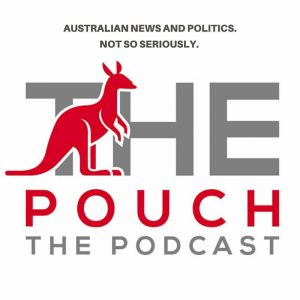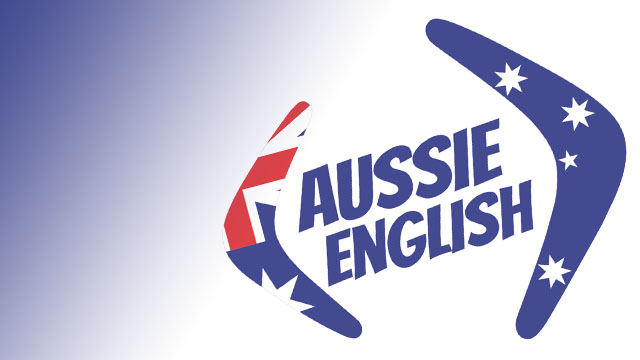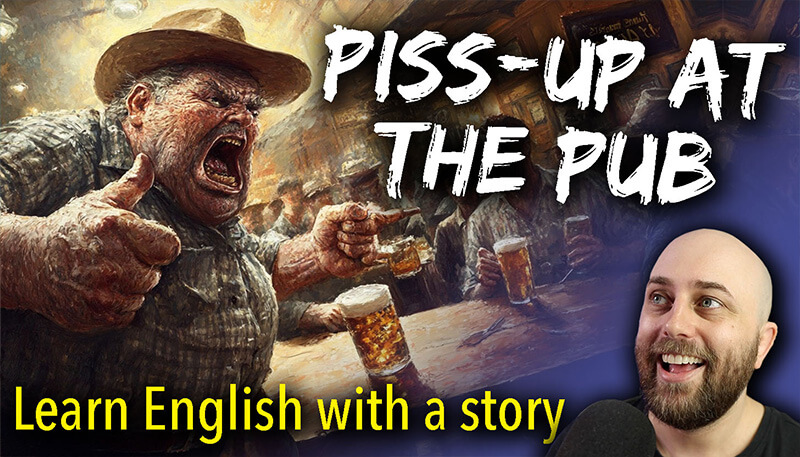AE 685 – Aussie Politics: Dog-Whistle Politics
Learn Australian English in this Aussie Politics episode where I chat with Gregg and Jake from The Pouch about what DOG-WHISTLE POLITICS is.
Transcript of AE 685 - Aussie Politics: Dog-Whistle Politics
G'day you mob and welcome to this episode of the series that I'm doing with Jake Farr-Wharton and Gregg Savage from The Pouch The Podcast on political expressions. So today we're going to explain for you a political expression that is used in Australian English all the time. Don't forget to go and check out their podcast, The Pouch, if you want to learn about all things Australian politics. So, guys, I hope you enjoy this informal fun discussion. Three guys getting together, having a bit of a laugh whilst talking about Aussie politics and also trying to teach you some Australian English at the same time. All right, guys, so tap the Currawong and let's get into it.
All right. Next one, 'dog whistle politics.'
This is an interesting one, because... To be frank, look, I know the definition is essentially when you say something but mean something else; something, you know, covert. Like, if you were to say something like, "They're taking our jobs"...
What was the name of the guy... I think it was a Queenslander that went into parliament and used the words 'the final solution' in a speech, right?
Yeah, that was egg... The guy who got egged on the back of the head. I can't recall his name.
Fraser Anning.
Fraser Anning, yes. Yeah, that was his... During his maiden speech to the Senate.
Yeah. Which was a total accident. He didn't mean to use those words.
And that's what I think Jack's getting at, right? Well, like I mean, assuming that were the case, do you think a lot of the time dog whistle politics gets used in a sort of less than honest way, where people aren't necessarily trying to infer something else, especially something... I mean, I don't know Fraser Anning that well. I don't know if he was really trying to...
I think in the case of Fraser Anning, he probably was. You know, he appeared at a number of white-nationalist rallies as well.
But I don't know how you can be that stupid to not think that that's not going to get picked up and...
He might not have cared, either. I think because of some of our politicians who have gotten the attention over the years, say someone like a Pauline Hanson, or a Clive Palmer, I think there's been more of a "Oh, people actually just want you to come out and say this sort of stuff." So I don't know whether or not it's really... It really matters too much at the moment about the, you know... I don't think you need to use the 'dog whistle'.
Yeah. Well is it even a dog whistle, right, because you're just saying it honestly. It's more of a trumpet.
That's exactly right. Now, I think in that case, it absolutely was. And moreover, you know, how do you, as an independent senator that stands for very little apart from a couple of things, how do you gain prominence in your political base, in the people who vote for you? How do you gain prominence in their minds? Well, you say something on a national stage that will allow them to hear, you know, those very important things that you look for in an elected political official, i.e., the things that you align with the most. And in this case, it was some pretty racist dialogue that... Well, some pretty historically significant and awful dialogue.
He was trying to hint at.
Don't forget guys, you know, the Third Reich, it's still coming!
I think it's also important to acknowledge that the guy got voted in on less than 12 votes, because of the political preference system in the Senate. And because of that, you know, he had a tiny, tiny base and he was only in for a couple of years. So normally it's six years in the Senate, in the federal Senate. But he was only in for a couple of years because he was brought in on a by-election that somebody lost.
Do you want to mention, quickly, how that works? the preferences in voting?
It's going to be very difficult, in terms of the Senate, because... For those of you who have seen the Senate paper for the federal Senate, it is several A3 sheets stuck together.
Wide piece of paper, right.
No. Keep extending your arms. Do you remember that movie, 'Dave', from the 90s? "Once I caught a fish this big!" But, yeah, it is...
There's 1 Rotten Tomato rating on Rotten Tomatoes. 100%.
"It was a great movie, okay? I swear!" So essentially, the preference system in Australia is where you, as a political party, get to say who your vote goes to if you don't collect enough votes to get elected. So essentially if I, in the Jake Farr-Wharton party, get only 47 votes and I need 50. So 47 votes is not enough to get me elected, so I say, "Instead of it going to just a random party, like the Pete Smissen party. Ew, gross. I want my votes to go directly to the Gregg Savage party."
It's a good party.
Yeah, exactly. It's a great party, has greying hair. So, essentially preferences are a way of...
That's the only platform.
It's all about greyed hair! And it's fixing. But so the important thing is it's used strategically in a number of ways. So it's used... For example, the Liberal Party, which is, federally, the leading party in Australia, they might say, "We really, really don't like the Greens. So we might think about placing them at the very lowest level of our preferences. So after everybody else has had their votes counted, then we'll think about giving our votes to them." But they may be politically strategic about this and say, "But more than us hating the Greens ideologically, we actually really, really want to ensure that the Labour Party definitely doesn't get our votes because they are more likely to, you know, with the addition of our votes, they are more likely to get elected. As a consequence, we're going to preference the Greens above the Labour Party."
So it's like all the votes count. They have to count.
Yep. 100%. Except for the donkey votes.
Except for the donkey votes, yeah. But if you don't get enough, you have to pass them on, and as a party, you have to decide who gets those first.
Yeah, exactly. It's like third grade when you're sitting around, you know, you're all sitting...
Getting picked for a team at team sport.
No, it's the... You know, you get the present and you got to take one and pass it on.
Oh, Pass the parcel, right. Yeah. I hated that game.
Yeah. Because I always lost.
This is why fish and chips scares me all the time now.
Thanks for joining me today, guys. I hope you enjoyed this episode, I hope you learnt a little something new and I hope that you improved your listening comprehension, as I know that sometimes it's difficult to listen to three native speakers all talking over the top of each other about a certain, you know, topic in conversation, but that's the whole point of this sort of series. It's to give you exposure to advanced English discussions, chats, everything like that, so that you can work on your listening comprehension whilst also learning about Australia, Australian politics and some English vocab about politics. Don't forget to go and check out Jake and Gregg's podcast, The Pouch. You can find this via any good podcast application for free. They publish an episode every weekend about Australian politics. Anyway, until next time, guys. I hope you have a killer week and I'll see you soon.
Here's what you get when you sign up!
- Read while you listen using the Premium Podcast player.
- Understand every word in every episode.
- Download all PDF transcripts and MP3s for 600+ episodes.
- Get access to bonus member-only episodes.













Responses